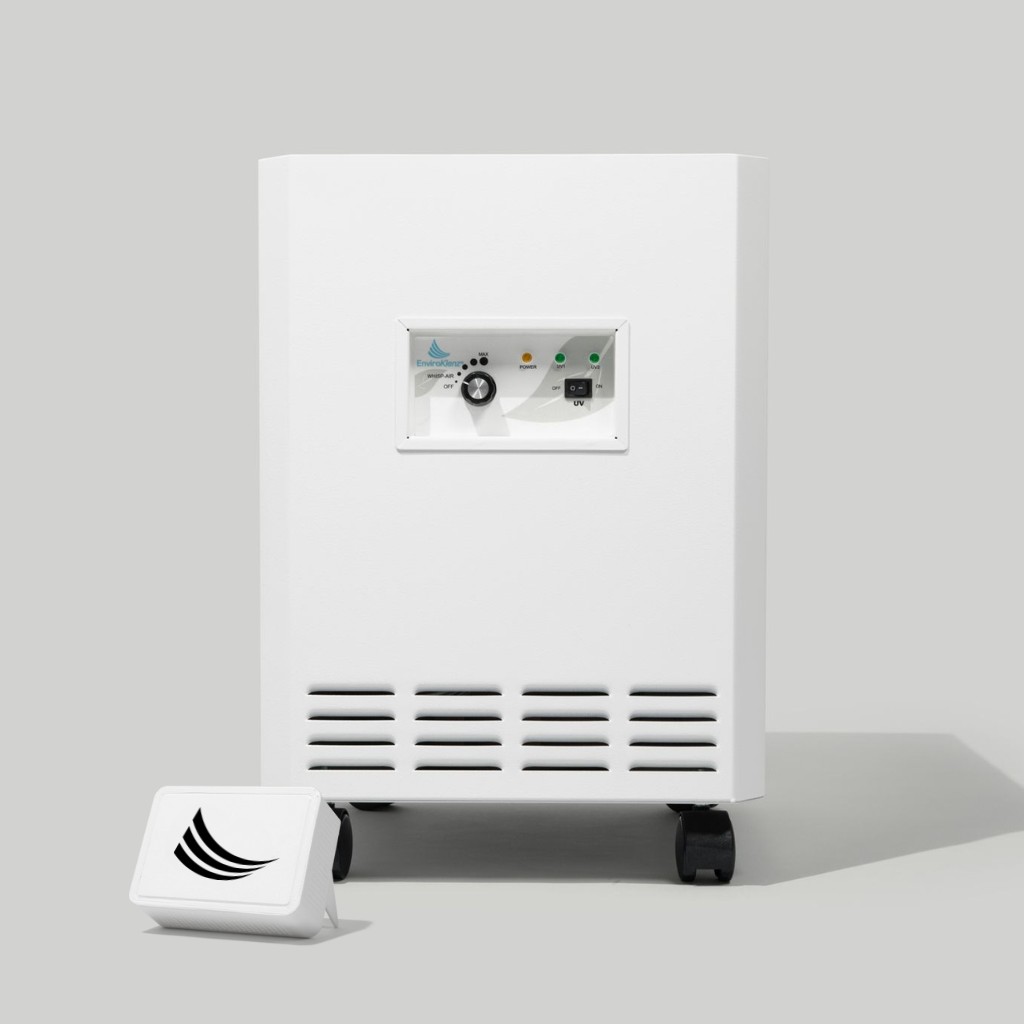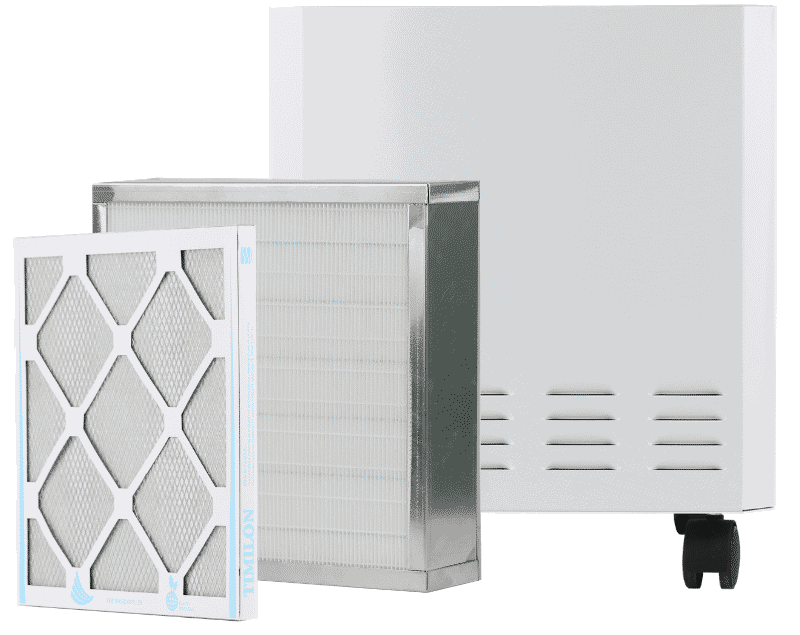Have you ever been exposed to an indoor environment that has high levels of cigar smoke present in the indoor airspace? If you have, then you know how strong and overbearing this odor can be in the environment, and the impact that it can have on an individual’s senses – most importantly on a person’s sense of smell! Cigars, similar to cigarettes, can produce an exuberant amount of smoke in the airspace of the indoor environment that can significantly alter the air quality of the environment. In the past, cigars were not a prevalently utilized form of tobacco as it was mostly enjoyed by older individuals, mostly men older than 50 years of age. However, recently the phenomenon of smoking cigars has increased drastically, especially with those younger individuals who are partaking in this form of tobacco more and more frequently.
Cigar’s utilize tobacco within their construction and as this tobacco product is smoked it will produce plumes of smoke into the air of the environment that will hang in the airspace for a long duration of time, depending on the ventilation and air quality in this indoor space. Indoor cigar rooms or lounges will often deal with the issue of compromised indoor air quality and high levels of chemicals/odors in the air – and overtime this can become problematic. What can be done to help maintain proper indoor air quality in this cigar tainted environment and how exactly can cigars impact the indoor air of these environments?
In this article we are going to learn more about cigars including chemicals found in these tobacco products, how they affect human health, and what can be done to combat and remove these chemical odors and smoke from the indoor air of a personal indoor environment.
What is a Cigar Made Of
If you have ever seen someone smoking a large brown, cigarette-looking item this is most likely a cigar that they are smoking. The distinguishable characteristics of cigars are what help people determine the difference between a cigar and a cigarette – and this will include its noticeably specific look that is completely opposite of a cigarette’s small and compact size. Cigars are thicker tobacco products that are typically wrapped in tobacco paper that will take on a brown appearance on the cigar. Typically, cigars are made of three types of tobacco leaves, according to Cigar World; the wrapper, the binder, and the filler of the cigar, and all of these components will contribute to the overall quality of the cigar when it is smoked.
The wrapper of a cigar is the outside leaf of the tobacco and this is what you see when you look at a cigar. The color and texture of the cigar wrapper are the key characteristics of the cigar and this will provide the cigar with 30% to 60% of the cigar’s overall flavor.
Then the cigar’s binder is the “blanket” that contains the filler leaves and keeps them in place, separating them from the wrapper. When the wrapper from a cigar is removed, the next leaf you would see in the composition of the cigar is the binder. The binder is placed on a cigar for two purposes; one to provide a smooth surface for making an adhesive to the wrapper and the second is for its combustibility to make sure the wrapper burns well.
Lastly, the filler of the cigar is formed using tobacco as the innermost leaves of the cigar that are held together by the binder of the cigar. The tobacco filler is the key component to the cigar that consists of a specific blend of different tobaccos that will create the desirable flavor of that cigar.
Cigar vs Cigarette
It is a well-known fact that cigarettes are not healthy or safe to human health, and the same could be said of cigars. Many people, however, have preconceived notions about cigars and its “safer” components to human health than cigarettes, but this is a major fallacy. Usually people consider cigars to be a sophisticated, classy form of smoking tobacco, whereas cigarettes are considered a habitual, addictive form of tobacco use that is consider dangerous to human health. Cigars and cigarettes share very similar characteristics and chemical composition that can affect overall human health and indoor air quality in an environment.
Both cigars and cigarettes contain tobacco within their composition, and these will contain the same and/or similar chemical construction that will be emitted into the air through the smoke plumes. Additionally, both cigars and cigarettes contain nicotine within the product(s) and each of these will hold different amounts of nicotine. According to PIH Health, cigars can have up to 100-200 milligrams of nicotine, while cigarettes on average have eight milligrams in just one cigarette.
Some of the major differences between cigars and cigarettes will include the composition of the wrapping of each of these tobacco products – cigars are wrapped in tobacco lead or a material containing tobacco and cigarettes are wrapped in paper or a material that does not contain tobacco. Also, cigars tend to be unfiltered and thicker in size than cigarettes, whereas cigarettes tend to have filtered ends and will be smaller than cigars in size. Lastly, the way these products are smoked are vastly different as cigars smoke is left in the mouth and cigarette smoke is inhaled into the lungs which will lead to absorption of nicotine into the bloodstream at a higher level than cigars.
Chemicals in Tobacco
As we discussed earlier, cigarettes and cigars are made from dried tobacco leaves along with other substances that are added to help provide flavor and increase the overall “quality” of the tobacco products. The smoke that is elicited and produced into the air space from these products will result in a complex mixture of chemicals that come from the burnt tobacco and residual chemicals used in the cigarettes and cigars. This tobacco smoke in reality is made up of thousands of chemicals according to the American Cancer Society, who states that at least 70 chemicals known to cause cancer to be present in this smoke. These known cancerous chemicals that are present in tobacco smoke are referred to as carcinogens that can have a significantly adverse effect on human health.
Some of the most commonly found chemicals in tobacco smoke will include the following;
- Nicotine: A chemical stimulant that is used in all tobacco products like cigarettes and cigars. This addictive substance is absorbed into the wall lining of the small air sacs in the lungs when a person inhales the tobacco smoke into their lungs. This will lead to the introduction of the nicotine into the bloodstream where it will enter into the brain and travel throughout the body. Ultimately, nicotine will form a dependency in a person which will create an addiction to the tobacco products.
- Hydrogen Cyanide: One of the tobaccos smoke’s poisonous substances which are formed from the combustion of the protein and nitrate compounds in tobacco.
- Formaldehyde: A toxic gas that is created as a by-product of the combustion process of cigarette and cigar smoking that can create several health problems and compromising effects on indoor air quality.
- Lead: A tobacco constituent that is measured in mainstream smoke exhaled by smokers that is present in tobacco smoke.
- Arsenic: Similar to lead, arsenic is measured in mainstream smoke that is exhaled by a tobacco smoker in the air.
- Carbon Monoxide: A poisonous, colorless, and odorless gas that is produced from incomplete burning of carbon-containing fuels such as vehicle exhausts, gas stoves, and tobacco smoke.
Additional tobacco chemicals:
- Ammonia
- Radioactive elements
- Benzene
- Nitrosamines
- Polycyclic aromatic hydrocarbons (PAHs)
Are Cigars Good or Bad for You?
When it comes to cigars and smoking these tobacco products there are many risks that can be produced from the use of these products, especially daily use or exposure. There are a lot of studies and research that have been conducted on the overall health impact of cigars on the human body. As we said earlier, cigar smoke and other tobacco smoke produced from similar products like cigarettes will contain a mix of chemicals within its construction that can taint the indoor environment’s air quality. According to the Centers for Disease Control and Prevention (CDC), regular cigar smoking is associated with an increased risk for cancers of the lungs, esophagus, larynx, and oral cavity. Additionally, it has also been linked to gum disease and tooth loss in those heavy smokers.
Cigars will contain a toxic blend of dangerous chemicals and compounds within its construction – with addictive, hazardous, and carcinogenic compounds found in other tobacco products as well. The cigar smoke that is inhaled inside of an environment can cause an array of health effects like lung, oral cavity, larynx, and esophagus. Those individuals who smoke cigars heavily or inhale the smoke deep into their body will also have an increased risk of developing chronic obstructive pulmonary disease (COPD), reported by the American Lung Association. Generally, the more and more you smoke cigars, the greater the risks you have for these diseases and cancer development in the body.
How to Get Rid of Cigar Smell in the Air
The invasive characteristic of cigar smoke allows for this tobacco produced smoke to penetrate just about every nook and cranny of the indoor space in which the smoke is released into, including a home, cigar lounge or bar, or any other indoor space. Cigar smoke will leave behind a tar residue and strong odor that will seep into all your soft surfaces in your home like carpeting, furniture, walls, and even window surfaces. Depending on the indoor environment and the conditions in this space, such as air flow and ventilation, it may contribute to the duration of time that the smoke and odors will hang in the air and thus are important qualities to focus on when trying to get rid of cigar smell in the air.
The process of getting rid of cigar smoke smell that is hanging in the air of a personal indoor environment can be labor intensive and may take some time to thoroughly mitigate completely. There are several different methods that people will try to use to absolve this cigar smell problem in the air – such as cleaning the carpet, repainting walls, washing draperies and other cloth items in the home, and even through the use of air purification and air quality solutions in the indoor space.
Cigar Air Purifier
How to get rid of cigarette smoke and cigar smoke indoors? Air purifiers have become the go-to solution for many individuals who are dealing with odor-compromised, elevated chemical levels, and high particle level environments. An air purifier is an air quality product that works by filtering the indoor air of a variety of different pollutants including chemicals, odors, and particulates, in some cases depending on the type of air purifier and technology utilized within this air device. There are a variety of air purifiers and air purifier technologies that can be used in these specific air devices, some using carbon, ozone, or ionization technology as a means to filter the indoor air. All of these different air filtering technologies will work in specific mechanisms that will allow it to filter certain airborne pollutants from the air – whether that be odors, chemicals, or particulates from the indoor air space.
The EnviroKlenz Air Purifier is your go-to solution for removing a broad spectrum of noxious and toxic chemicals and odors from the air, as well as accomplishing a high-efficiency removal of fine particulate matter from the indoor air. The proprietary EnviroKlenz® technology consists of safe, nontoxic earth minerals that will work to capture, contain, and neutralize a broad spectrum of noxious and toxic chemicals and odors from the indoor air, completely removing them from the environment and the filter media of the EnviroKlenz Air Cartridge, unlike other technologies like carbon. The second stage of filtration in the EnviroKlenz Air Purifier is a hospital-grade HEPA filter for fine particulate removal larger than 0.3 microns in size at a 99.99 percent efficiency. These fine particulate matters can include dust, dander, and other small debris in your indoor air that can be tainting the indoor air quality and triggering health problems in those exposed to this environment.
Article Sources:









